
As a queer bicultural woman, I was born to a British mother and a Greek father. I was born in the UK, raised in Greece, and brought up bilingual. Having dual heritage (with the added extra of being queer) for me, resulted in researching the complexity of a hybrid cultural experience and intersectional identities. Having a background in fashion, led me to approach this project as a practice led endeavour. My research is an exploration of gender-neutral fashion as a way of communicating my cultural experience.
The project is divided into two segments. Throughout the first, I am designing inspired by traditional Greek culture and folklore and creating garments using contemporary western construction techniques. Specifically, I am looking at traditional Greek folk dress of the 19th – 20th century and merging them with a British design aesthetic that does not conform to gender binaries. Due to COVID-19 and the implications surrounding the pandemic, these designs are realised using 3D Digital Fashion Design Systems. Surprisingly, this has enriched the research in a way that I am able to design and develop practice in a hybrid space (between 2D & 3D digital platforms), produce hybrid gender-neutral garments to articulate the hybrid experience of queer bicultural displacement. The other segment of the research involves the composition of blog posts that provide an insight into the processes, using autoethnographic reflection to capture the emotionally felt response to my experience of hybridity.
2021 marks the 200th anniversary of Greek Independence, and there are a series of exhibitions and conventions taking place throughout Greece. Therefore, in June, I travelled to Athens – Greece, to further enrich my childhood knowledge of Greek folklore. The trip was funded through the Manchester Metropolitan Graduate School’s Research Support Award. My initial plans were to attend exhibitions and workshops by folklorists and traditional technicians. However, due to the pandemic the events either got cancelled or postponed to later in the year. Luckily, I was able to visit two folk museums to gather photographs and information about traditional dress.
Firstly, I visited The Vorres Museum in the Paiania area of Athens. The museum is considered a re-adaptation of traditional Greek architectural features, furniture, and art, that first opened in 1983. The collection includes over 6000 pieces covering 4000 years of Greek history. This was originally the owner’s house, whose goal was to preserve traditional Greek craft in a time when xenomania had reached its height in 20th century Greece.
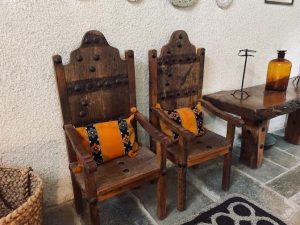
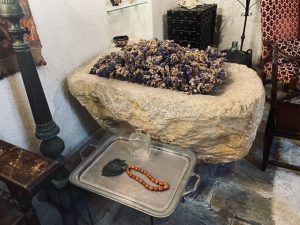
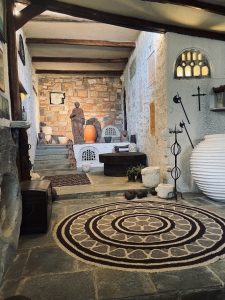
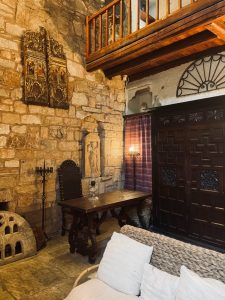
Additionally, I visited The Benaki Museum in Central Athens. Established in 1930, this museum was once home to the Benakis family. Arguably the most famous museum of Greek culture (beyond the Acropolis), the exhibitions are split across three floors and arranged diachronically from prehistory to the 20th century. Here, I was able to study a wide variety of art and material culture from all over Greece. The details and vibrancy that have been preserved across the years, left me nothing but motivated to develop this practice as research project further.
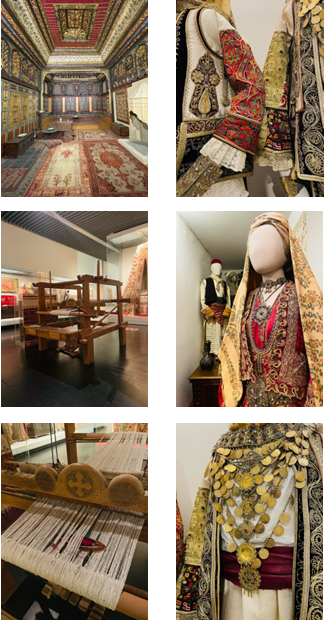
Scavenging through antique shops in the city of Athens, after my museum visits, allowed me to explore the tactility of cultural memory. The stories, the emotions and the memories all tied to a place I have been away from for the last 6 years living in the UK. Unintentionally and inevitably, this autoethnographic reflexive exercise clarified that now is the perfect time to re-introduce the concept of hybridity when discussing identity.
Sophia’s research trip to Athens was part-funded through the Manchester Metropolitan Graduate School’s Research Support Award. Find out more about the award and application process by visiting the PGR Development Moodle area.


